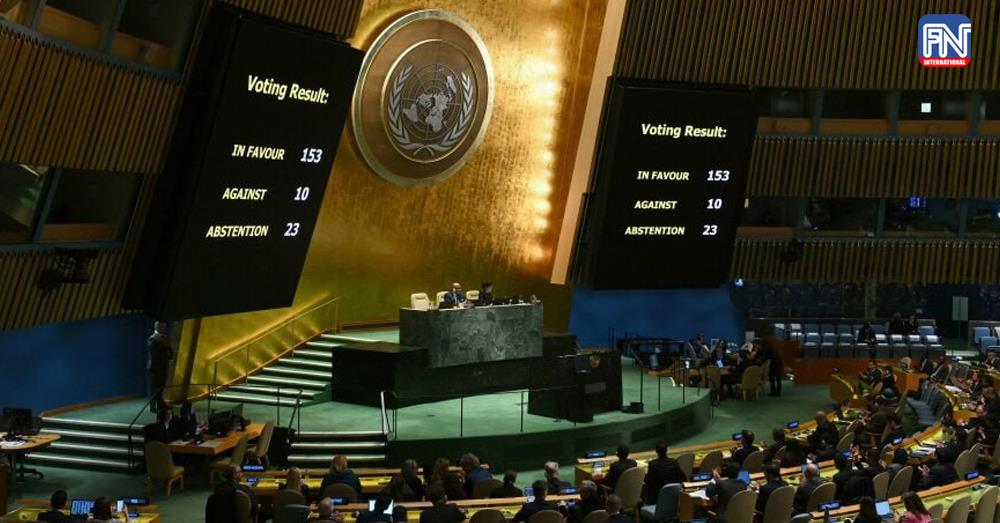UNITED NATIONS, Dec 12 (Reuters) - The United Nations on Tuesday demanded an immediate humanitarian ceasefire in the Israel-Hamas war after more than three-quarters of the 193-member General Assembly backed the move, which had been vetoed by the United States in the Security Council last week.
The United States does not have a veto in the General Assembly. It voted against the resolution, along with Israel and eight other countries. The resolution was adopted to a round of applause with 153 votes in favor, while 23 countries abstained from the vote.
Palestinian U.N. envoy Riyad Mansour, citing large pro-Palestinian protests around the world, said the U.S. could not continue "to ignore this massive power." He described the General Assembly vote as a culmination of public sentiment.
"It is our collective duty to continue on this path until we see an end to this aggression against our people, to see this war stopping against our people. It is our duty to save lives," he told reporters, with Arab ambassadors standing alongside him.
Before the U.N. vote, U.S. President Joe Biden told a fundraising event for his 2024 re-election campaign that Israel was losing international support because of "indiscriminate bombing that takes place."
Israel has bombarded Gaza from the air, imposed a siege and launched a ground offensive in retaliation for an Oct. 7 attack by Hamas that Israel says killed 1,200 people and saw 240 people taken hostage. Gaza's health ministry says 18,205 Palestinians have been killed and nearly 50,000 wounded.
General Assembly resolutions are not binding but carry political weight, reflecting a global view on the war. U.N. Secretary-General Antonio Guterres has long called for a humanitarian ceasefire and last week made the rare move to warn the Security Council of the global threat posed by the war.
U.S. Ambassador to the U.N. Linda Thomas-Greenfield told the General Assembly before the vote that there were aspects of the resolution that the U.S. supported, such as the need to urgently address the dire humanitarian situation in Gaza, protect civilians and free hostages.
But she added: "Any ceasefire right now would be temporary at the best and dangerous at worst - dangerous to Israelis, who would be subject to relentless attacks, and also dangerous to Palestinians, who deserve the chance to build a better future for themselves, free from Hamas."





